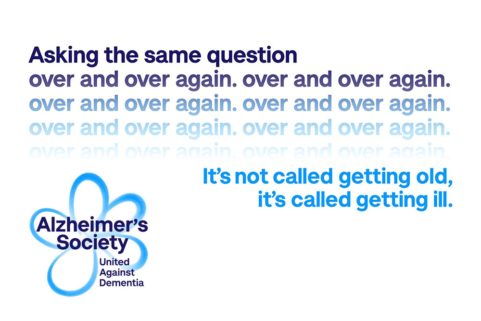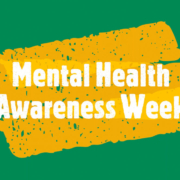Dementia Action Week 2022
As part of Dementia Action Week 2022, Rob Hill, our CMC Director and Together Guardian for Age, shares his family’s very personal story with us.
Further links and video follow Rob’s story. We extend our thanks and support to Rob, his family, and others this that touches.
From Rob:
This week is dementia action week which is, for me, an issue particularly close to home.
Dementia is an umbrella term for a range of progressive conditions that affect the brain.
Each type of dementia stops a person’s brain cells (neurones) working properly in specific areas, affecting their ability to remember, think and speak.
Doctors typically use the word ‘‘dementia’’ to describe common symptoms – such as memory loss, confusion, and problems with speech and understanding – that get worse over time.
Dementia can affect a person at any age but it’s more common in people over the age of 65.
There are over 200 subtypes of dementia. The most common are Alzheimer’s disease, vascular dementia, Lewy body dementia, frontotemporal dementia, and mixed dementia.
By 2025, it’s estimated that over one million people in the UK will have a diagnosis of dementia – and almost all of us will know someone living with the condition.
My mum was diagnosed with vascular dementia a few years ago and watching her decline has become a sad reality over the intervening period. I once read in an excellent book by Wendy Mitchell (“Somebody I Used to Know”) that having dementia is a bit like having all your memories in a slightly unsteady bookcase – the most recent ones on the top shelf and the older ones further down. When dementia gives the bookcase a wobble, it’s those recent memories on the upper shelves that are the first to go. So mum can still (sometimes)sing along to at least a bit of the chorus to “Hey Jude”, but she couldn’t tell you what she did this morning.
Dementia sufferers often develop coping mechanisms to avoid embarrassment. Mum can still form sentences that kind of make sense in and of themselves, but they are always completely out of context. They are just her way of being able to be part of a conversation. She will also recognise people as being dear to her, but probably can’t remember their names or how she knows them (and certainly not when she saw them last). In more lucid moments she will admit to great frustration, calling herself stupid, which is both far from the truth and hard to hear, but an understandable reaction.
Dementia in all its forms is terribly unkind to its sufferers, but it’s also tough for their families and carers. Most partners of dementia sufferers – my Dad included – want to continue looking after their loved one themselves for as long as they can, but although there are some great charities offering support, it’s still really hard. Watching someone deteriorate, fighting against the (at least occasional) exasperation, and often feeling quite lonely even though not alone – particularly once meaningful conversations have become difficult or altogether absent. So don’t forget to care for the carers, too – quite often they’ve given up significant aspects of their ‘normal’ life, sacrificing their own interests, pastimes, and independent relationships in order to care for another.
In our daily lives – particularly within our business – many of us are in public facing roles, so being able to recognise the symptoms of dementia is helpful and knowing how to best support the sufferer even more so.
So please, take a moment to read the leaflet produced by the brilliant organisation Dementia UK. Take the time to understand that someone who may appear confused, disoriented and slightly incoherent may not be under the influence of drugs or alcohol but may be a dementia sufferer in need of your help and understanding.
- Do be kind
- Do be patient
- Do be reassuring
- Do be willing to repeat instructions the same way, simply and concisely
- Don’t argue with them
- Don’t ask them if they remember, or tell them they must remember
- Don’t tell them they are wrong
- Don’t talk about them and especially their condition like they are not there – they will very likely still understand what you are saying.
- On behalf of my mum and everyone else either suffering from dementia or caring for someone with dementia, thanks for reading and please use the resources below to learn more.
Dementia UK
Alzheimers Society
https://www.alzheimers.org.uk/get-involved/dementia-action-week










